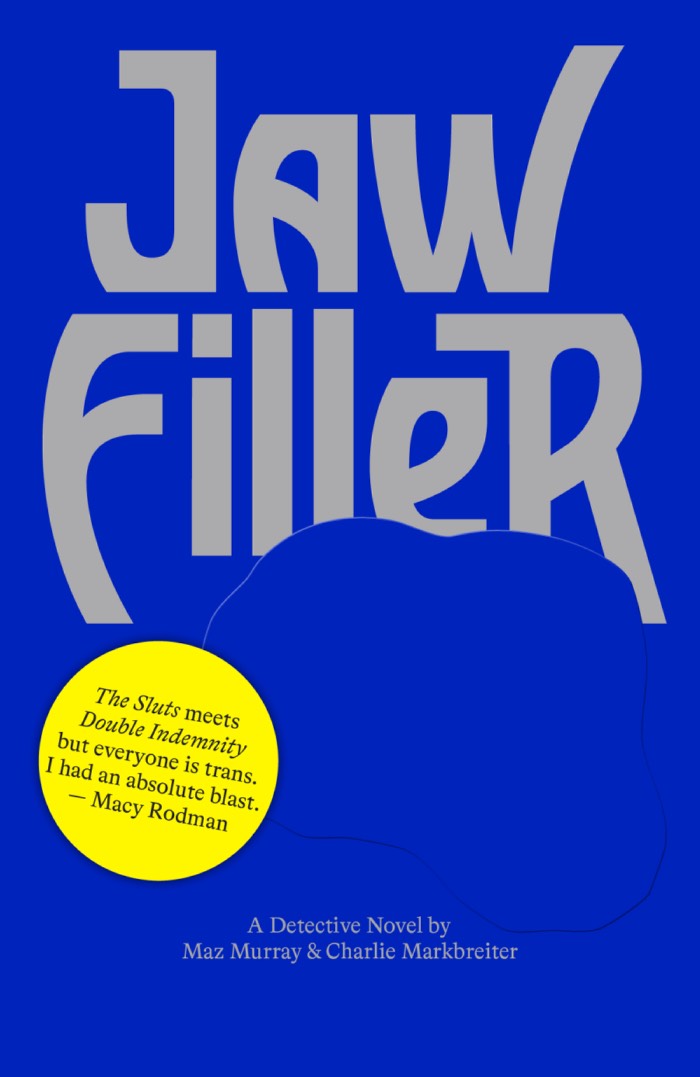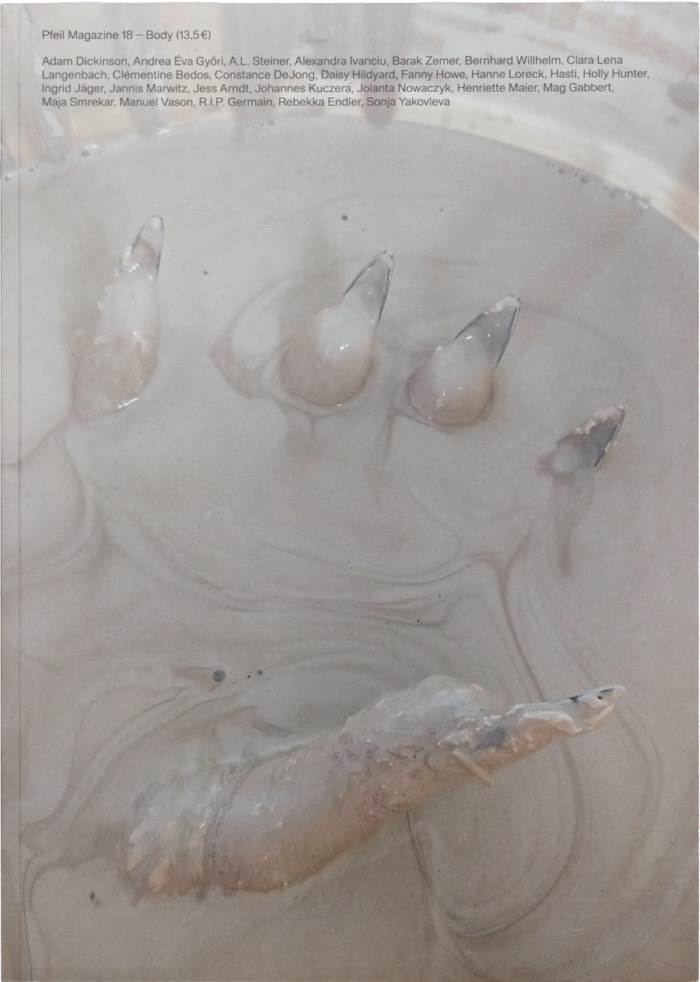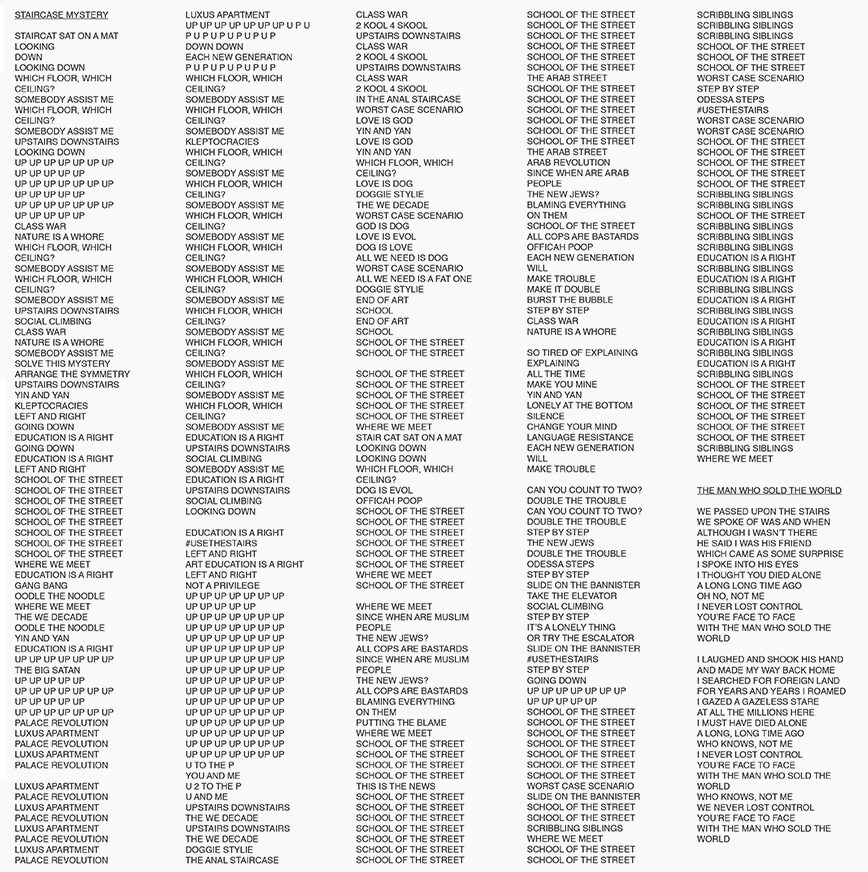
Pfeil Magazine #10 – Mainstream
Anja Dietmann ed.
Within the format of a magazine, each page of Pfeil represents the floor, walls, or ceiling which together create an imagined room displaying a printed exhibition. Each issue is dedicated to a specific word, and artists are invited and given space to work on and with this term, and to construct or deconstruct the architecture around it. Combined, the contributions transform into an organic display surrounding the leitmotif.
The tenth issue is dedicated to Mainstream, this volume questions exercised motions of majorities, practiced over long or short distances and timeframes, that can become patterns, sometimes taken for granted, sometimes followed unconsciously, automatically, or even mechanically.
Contributions by: Alice Creischer, Annette Kelm, Charlotte Simon, Dodo Voelkel, Emily Pope, Hans-Christian Dany, Harry Gamboa Jr., Heike-Karin Föll, Holly White, Jan Matthé, Jannis Marwitz, Karl Holmqvist, Kevin Gallagher, Lars Bang Larsen, Magdalena Los, Marina Pinsky, Merle Radtke, Nicola Gördes, Pablo Schlumberger, Penny Goring and Stella Rossié.
Editor: Anja Dietmann
Language: English







